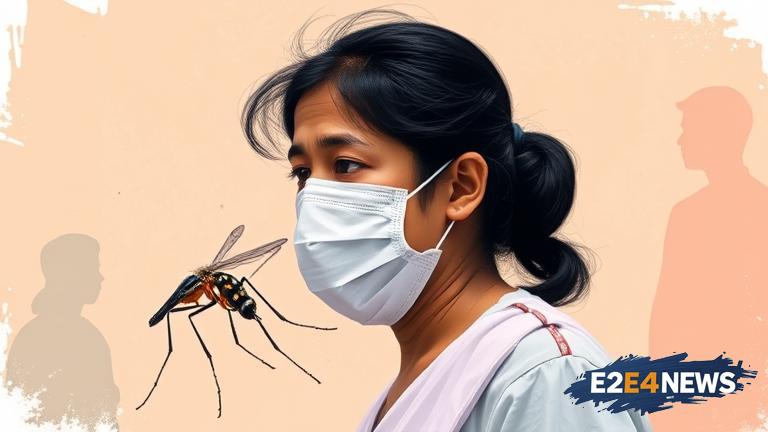Bangladesh is experiencing a significant surge in dengue fever cases, with the number of reported cases increasing exponentially over the past few weeks. The government has taken notice of the situation and is working tirelessly to combat the outbreak. According to recent reports, the number of dengue fever cases has risen to alarming levels, with many hospitals struggling to cope with the influx of patients. The situation is particularly dire in the capital city of Dhaka, where the majority of cases have been reported. The government has responded by increasing the number of hospital beds and medical staff dedicated to treating dengue fever patients. Additionally, a nationwide awareness campaign has been launched to educate the public on the risks of dengue fever and the importance of taking preventative measures. The campaign includes public service announcements, social media outreach, and community outreach programs. The government has also increased funding for dengue fever research and treatment, in an effort to better understand the disease and develop more effective treatments. Furthermore, the government has implemented measures to reduce the mosquito population, which is the primary vector for dengue fever transmission. These measures include increased spraying of insecticides and the distribution of mosquito nets to vulnerable populations. Despite these efforts, the number of dengue fever cases continues to rise, highlighting the need for continued vigilance and action. The government has urged citizens to take personal responsibility for preventing the spread of dengue fever, by taking measures such as eliminating standing water around their homes and using insect repellent. The opposition has criticized the government’s response to the outbreak, arguing that more needs to be done to address the root causes of the problem. However, the government has defended its actions, stating that it is doing everything in its power to combat the outbreak. The situation is being closely monitored by international health organizations, which have offered assistance and support to the government. The economic impact of the outbreak is also being felt, with many businesses and industries affected by the surge in dengue fever cases. The tourism industry, in particular, has been hit hard, with many travelers canceling their plans to visit Bangladesh due to concerns about the outbreak. The government has announced plans to provide financial support to affected businesses and industries, in an effort to mitigate the economic impact of the outbreak. In addition to the economic impact, the outbreak is also having a significant social impact, with many families affected by the disease. The government has announced plans to provide support to affected families, including financial assistance and access to medical care. The outbreak has also highlighted the need for improved public health infrastructure in Bangladesh, including better hospitals and medical facilities. The government has announced plans to invest in public health infrastructure, in an effort to improve the country’s ability to respond to future outbreaks. Overall, the situation in Bangladesh is dire, and the government must continue to take swift and decisive action to combat the outbreak. The international community must also provide support and assistance to the government, in order to help bring the outbreak under control.
